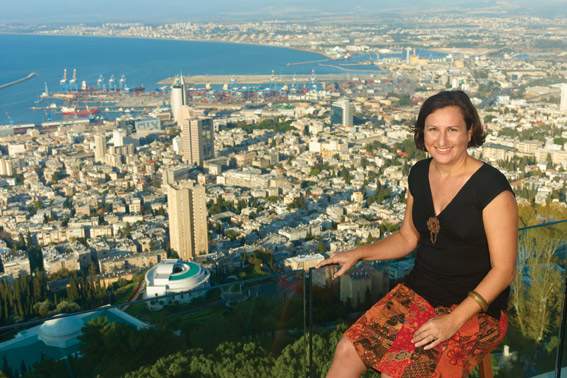Are you a journalist? Please sign up here for our press releases
Subscribe to our monthly newsletter:

Complexity is the name of the game in the modern world. Using the tools of dynamical systems theory, Prof. Vered Rom-Kedar studies systems that evolve over time, plying mathematics to gain new insights into our complex world.
Recently, Rom-Kedar examined a particularly intricate system: the human immune system. Chemotherapy causes a drop in the number of immune cells, called neutrophils, intended to protect the body against bacteria and other invaders. As these “bodyguards” are depleted, the body’s defenses are weakened. Injecting growth factors often helps, but some patients still get severe infections.
Rom-Kedar and her research student Dr. Eliezer Shochat (M.D./Ph.D., senior oncologist) built a mathematical model that describes the neutrophils’ dynamics. They showed that patients fall into three groups according to their blood count, and these groups respond differently to the growth factor therapy. The first group responds well. For the second group, the current treatment is ineffective, but the scientists’ results imply that a change in the administration protocol may help. For the third group, treatment with growth factors alone is insufficient at any dose, and the patients need an alternative therapy. These conclusions stem directly from the mathematical model, which makes it possible to predict outcomes and improve treatment. While the immune system is exceedingly complex, the model is simple, and that’s precisely its strength. The scientists are proposing to test their recommendations in clinical trials. If these succeed, treatment efficiency would increase and lives could be saved.
“A sense of belonging to family and social circles, as well as to the Israeli landscape and culture, is important to me. The Weizmann Institute anchors us to Israel. It allows me to invest most of my time in basic research in an atmosphere that’s both supportive and competitive.”
“I chose to be photographed on Mount Carmel, overlooking the bay area with its forests, the city and the sea. These are the landscapes of my childhood that are engraved in my memory.”
Prof. Vered Rom-Kedar is the incumbent of the Estrin Family Chair of Computer Science and Applied Mathematics.